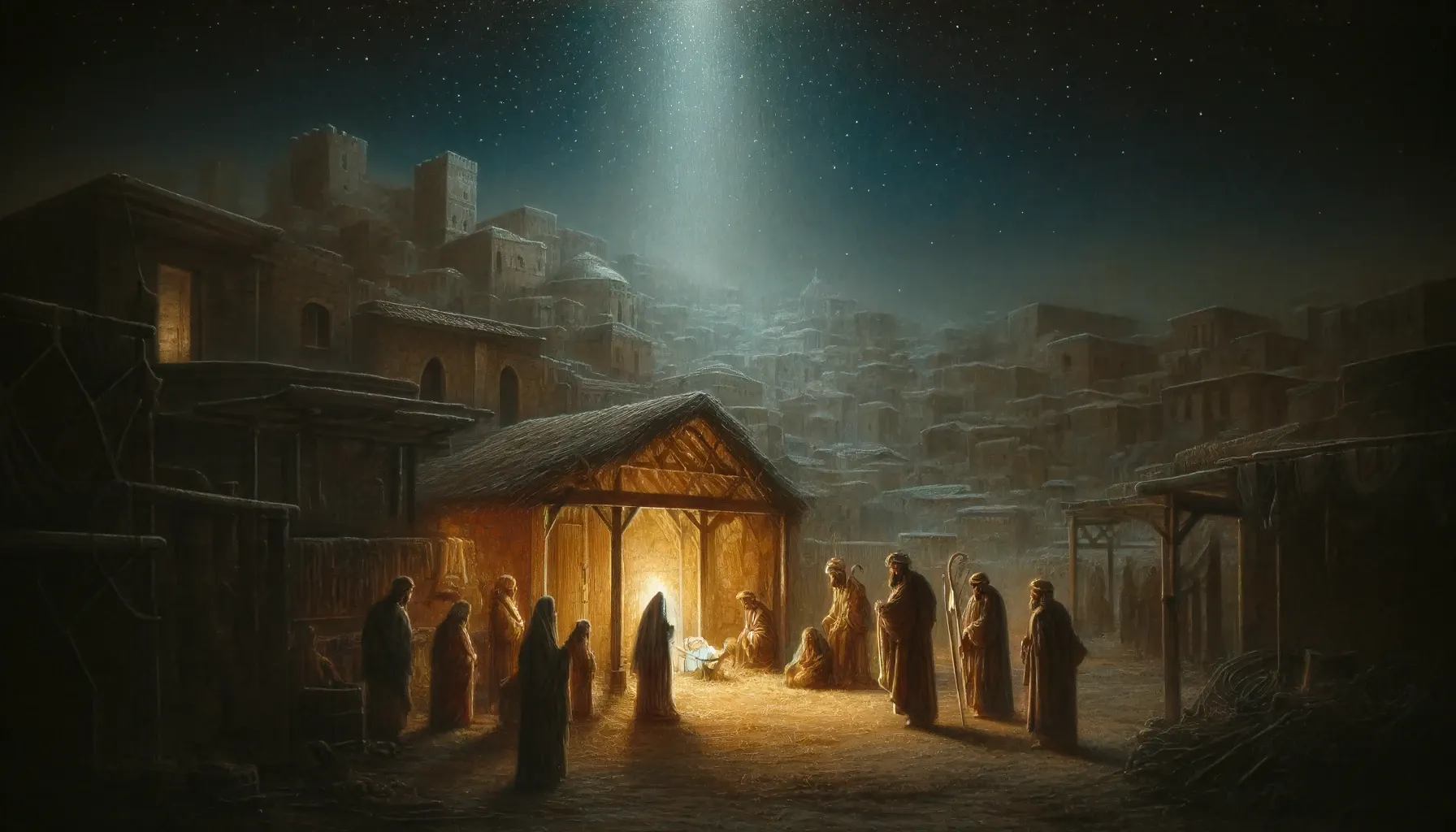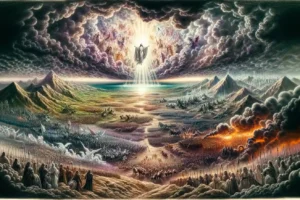
The Prophecy of the Messiah’s Birth in Bethlehem
The prophecy of the Messiah’s birth in Bethlehem, stated in Micah 5:2, and its fulfillment in the New Testament is a cornerstone of biblical prophecy and its realization. Here are some quick facts about this significant biblical event:
Prophetic Declaration (Micah 5:2):
- Micah, an Old Testament prophet, explicitly names Bethlehem as the birthplace of a ruler in Israel, who is described as having origins “from of old, from ancient times.”
- Bethlehem, though small among the clans of Judah, is identified as the future birthplace of the Messiah, emphasizing that God often uses the humble and small to accomplish great purposes.
New Testament Fulfillment:
- Matthew 2:1: Matthew’s Gospel records the birth of Jesus in Bethlehem during the reign of King Herod. This event draws Magi from the east, signaling that the prophecy is recognized and revered beyond Jewish boundaries.
- Luke 2:4-6: Luke provides additional details, noting that Joseph and Mary went to Bethlehem because of a Roman census. While they were there, the time came for Jesus to be born.
Significance of Bethlehem:
- Bethlehem was also the city of David, Israel’s great king, which aligns the prophesied ruler with the Davidic lineage, fulfilling promises God made regarding David’s descendants.
Divine Orchestration:
- The circumstances leading to Jesus’ birth in Bethlehem—such as the Roman census—highlight the theme of divine orchestration in scripture, where God uses political and social movements to fulfill His purposes.
Theological Implications:
- This prophecy and its fulfillment reinforce key Christian doctrines about Jesus’ messianic role and divine nature. It serves as a testament to God’s faithfulness to His word and plan, spanning centuries.
The prophecy in Micah 5:2 about the Messiah’s birth in Bethlehem and its fulfillment as recorded in Matthew 2:1 and Luke 2:4-6 offers a compelling example of biblical prophecy and realization, showcasing the theological depth and historical accuracy of the scriptures. This narrative not only confirms the messianic expectations set forth in the Hebrew scriptures but also underscores the divine orchestration across the epochs of history.
Detailed Analysis
Micah 5:2 – Prophecy Context and Content
- Historical Context:
- Micah prophesied during a period of political turmoil and moral decay in the 8th century BC, primarily addressing both Judah and Israel. His prophecy emerges in a time when the people of Judah faced threats from Assyrian power.
- Prophetic Details:
- Micah’s prophecy highlights Bethlehem, a seemingly insignificant town in Judah, as the birthplace of a ruler whose “origins are from of old, from ancient days.” This reference to ancient origins suggests a divine and eternal aspect of this forthcoming ruler, aligning with the theological belief in the pre-existence of the Messiah.
- Theological Significance:
- The prophecy underscores a theme prevalent in the Hebrew Bible: God’s use of the small or seemingly insignificant to achieve His grand purposes, emphasizing His sovereignty and the idea that human standards of power and significance are often inverted in the divine economy.
New Testament Fulfillment
- Matthew 2:1:
- Matthew reports the birth of Jesus in Bethlehem during King Herod’s reign, an event that draws wise men (Magi) from the East. This not only fulfills Micah’s prophecy but also extends its significance to a Gentile audience, suggesting the universal kingship of Jesus.
- Herod’s response to the Magi’s inquiry further illuminates the Jewish expectation of a Messiah and the known prophecy of Bethlehem as His birthplace.
- Luke 2:4-6:
- Luke adds a socio-political dimension to the fulfillment narrative. The Roman census required Joseph and Mary to travel to Bethlehem, Joseph’s ancestral home as a descendant of David. This census, a historical event, serves as the means by which the prophecy is fulfilled, illustrating the theme of divine orchestration.
- The humble circumstances of Jesus’ birth in a stable, wrapped in swaddling clothes, further highlight the theme of divine humility and the reversal of worldly expectations.
Broader Implications and Reflection
- Messiah’s Davidic Lineage:
- Divine Orchestration:
- The use of political events (Roman census) to fulfill divine prophecy showcases God’s sovereign power over human history and governments.
- Theological Continuity:
- This prophecy and its fulfillment affirm the continuity and reliability of divine revelation from the Old to the New Testament, reinforcing the integrity of the biblical narrative and its claim of divine inspiration.
This detailed analysis reveals the layers of significance behind the prophecy in Micah and its fulfillment in the Gospels, highlighting not only the precision of prophetic words but also their deep theological and historical dimensions, affirming the messianic identity and mission of Jesus Christ.



